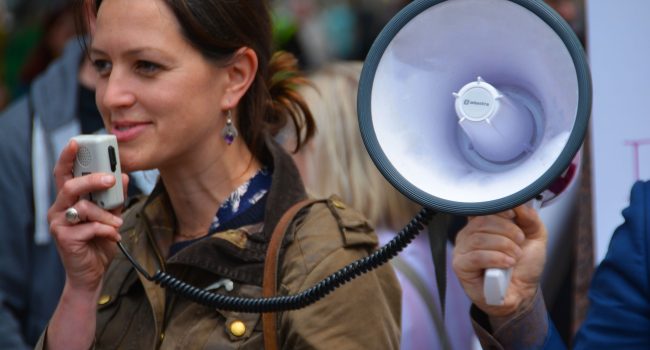The pro-Palestinian demonstrations on university campuses in the US and around the world have prompted fresh debates around policing, public order and people’s right to protest; Jess Reia, Assistant Professor of Data Science at the University of Virginia, argues that decisions over what constitutes urban disorder often target the most disadvantaged communities, and that deploying big data under the guise of enforcing public order can backfire.
“
Most encampments and buildings have been cleared in the name of order or safety – often by the police, sometimes with the use of excessive force. These police responses can have ripple effects in communities far beyond the university walls.
As a scholar of urban governance and data policy, I viewed the responses to protests on US campuses as about more than threats to academic freedom and freedom of speech. They are also threats to the fundamental rights of people in public spaces.
The protesters’ tactics, particularly their use of tents in encampments, have brought debates around definitions of public order and disorder to the fore.
Over the past couple of months, students in universities across the country, from the University of California, Los Angeles to the Massachusetts Institute of Technology, have occupied courtyards, classrooms and libraries in solidarity with Palestinians.
Lees verder via policinginsight.com
Meer leren over radicalisering, ondermijning, jeugd & veiligheid, zorg & veiligheid en bevoegdheden van de burgemeester op het gebied van OOV (demonstratierecht en online gebiedsverboden)? Kom naar de HCB Seminars ‘Topsprekers in Veiligheid 2024’ op 18 september en 9 oktober met o.a. Bram Sizoo, Janine Janssen, Bob Hoogenboom, André van der Laan en Jan van der Grinten.


 De effectiviteit van morele gedragsinterventies bij jeugdige delinquenten
De effectiviteit van morele gedragsinterventies bij jeugdige delinquenten
 OCW organiseert regiobijeenkomsten over toekomstig scholenaanbod
OCW organiseert regiobijeenkomsten over toekomstig scholenaanbod
 Permanente surveillance dreigt onder nieuwe anti-witwasregels
Permanente surveillance dreigt onder nieuwe anti-witwasregels




